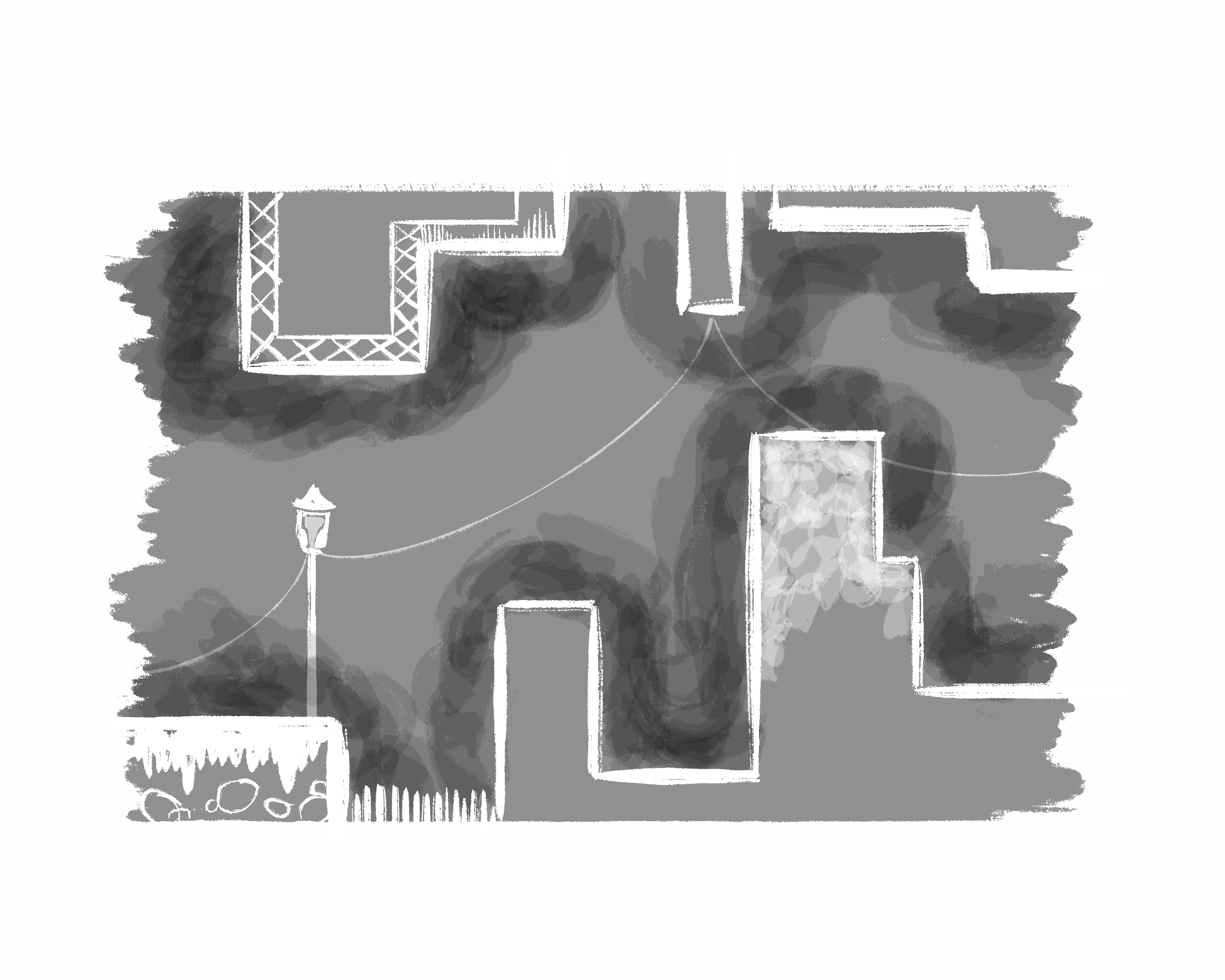Mountains of mindfulness: “Celeste” and the mental health of interactive media
October 13, 2023
 Eva Ahn
Eva AhnIt’s your hundredth attempt on this obstacle. In a heightened state, between spikes and sharp precipice, you’re being asked to press X, aim true and make a gap. You feel the weight of the mountain and the thinness of the air at this moment. You’re closing in on the summit, but time is short. In your hesitation, you slip, and your character slides off the side of a cliff. She could only hold on for so long and so you are back at the start. You’ve reached a low, but you remember to breathe and take a break because, if anything could have taught you that just to try again is a pleasure, it’s this game. One simply must imagine the “Celeste” player to be happy.
In “Celeste,” a platformer-adventure title by Extremely OK Games, you’re a young woman named Madeline who overcomes self-doubt by climbing a mountain. You’re very capable, equipped with a dash move (essentially a double jump) and the temporary ability to climb on walls, but your style is susceptible to stutters: A prolonged hesitation will cause you to fall, and you can only dash once. After that, you must steady yourself on solid ground. And so Madeline, whether she is buffeted by strong winds or attacked by cave creatures, must learn to temper her confidence and anxiety as she ascends the mountain. You must hone her ability to take calculated leaps.
Madeline’s adventure is further shaped by her primary adversary. She must face Badeline, born from Madeline’s own reflection and the cause of her misery. This depressive doppelgänger, dressed in drab tones, makes up the game’s boss fights: Madeline must run from her past actions, navigate platforms and dodge around as a chasing Badeline, who mirrors her movements, attempts to catch her. Throughout the story, Madeline is also in constant debate with this evil twin; Badeline is a part of Madeline’s mind and attempts to dissuade her from continuing her journey. Thus Madeline must do what we all do as we grow: She must learn to live with her internal critic and appreciate its constraints, but also push past its bounds.
Players of “Celeste” may effectively learn to overcome difficulty and to take decisive action, but is this to say that the game is really healthy? When left to their devices and their own personal goals, players of challenging games like “Celeste” can become self-isolated and even numb. Their screen-induced stoicism may simply leave them jaded. “Celeste,” with its mental-health narrative, may then seem somewhat self-contradictory: Despite its motivating story, the game can cause users to spiral. However, I believe the game redeems itself by incentivizing the pursuit of something more, directly encouraging its players not to remain self-absorbed.
Throughout the platforming gauntlet of “Celeste,” Madeline makes friends and has the opportunity to try to please them. There are collectibles—strawberries—strewn across the various stages, stashed in corners and past extra optional obstacles.
At the end of the game, Madeline makes a pie for her friends with the berries she collected. It’s her moment of triumph and a time to celebrate. The quality of her pie directly depends on her player’s experience. If Madeline rushes, the consequence of the numb player who finds no enjoyment is to suffer diminishing returns; she may not pick up a single berry, and her celebration will be bland. Her player will not have found fun in challenge, but only in the idea of success, and so their own memory of the climb will be stale. If asked by a friend why they spent their time playing, they’d probably struggle to relate a good reason.
The Madeline who had collected all the berries, however, could not have rushed. Her player would have appreciated the constructive nature of their journey, and they would have picked apart all the puzzles and bitten off more so they could chew. Their Madeline’s pie, full of the fruits of their labor, would be sweet, just as their own memories would now make a better story. They could now more effectively share with their friends, and with themselves, why they cared.
And so the game’s ultimate message for the player is as touching as it is clear: In climbing the mountains in your life, you must create your just desserts. The products of personal growth, when properly pursued, are those best shared.

Comments
Before submitting a comment, please review our comment policy. Some key points from the policy: